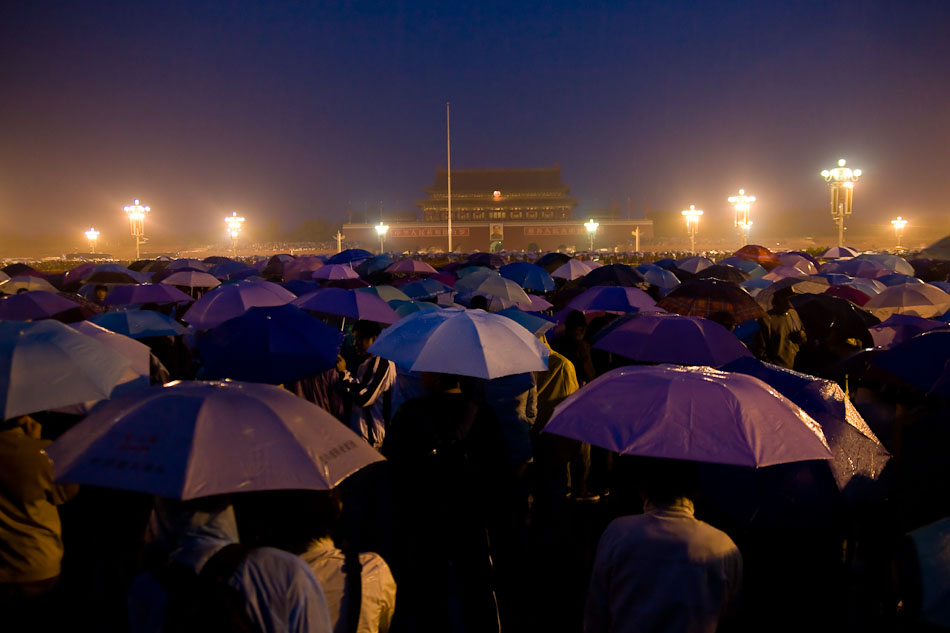Aug 5, 2009 | Society, Youth
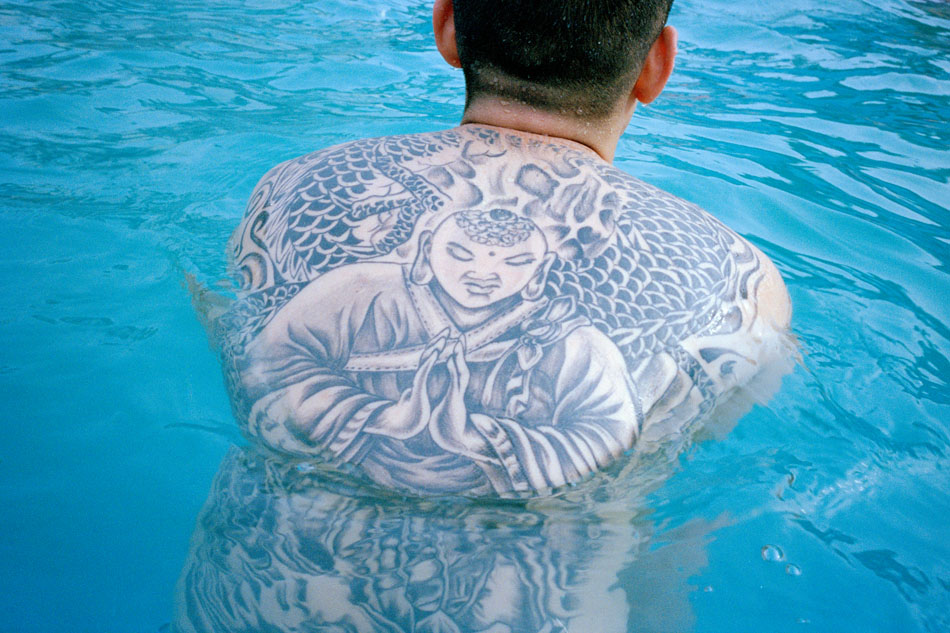
Located in the heart of Beijing’s central business district, just north of the newly completed CCTV Tower, Tuanjiehu Park easily takes the cake for a convienent respite from the summer heat. While certainly not a fountain of youth, it still draws all walks of life from across the city – tattooed gangsters and children share inner tubes while lady boys in banana slings contest for sand space with the elderly. There is always a motley crew trying to catch a little sun or enjoy a quick run down a water slide. Just be wary of friends trying to bury you in the sand. Still, if you close your eyes and listen closely to the wave generator, you might as well be at the beach.
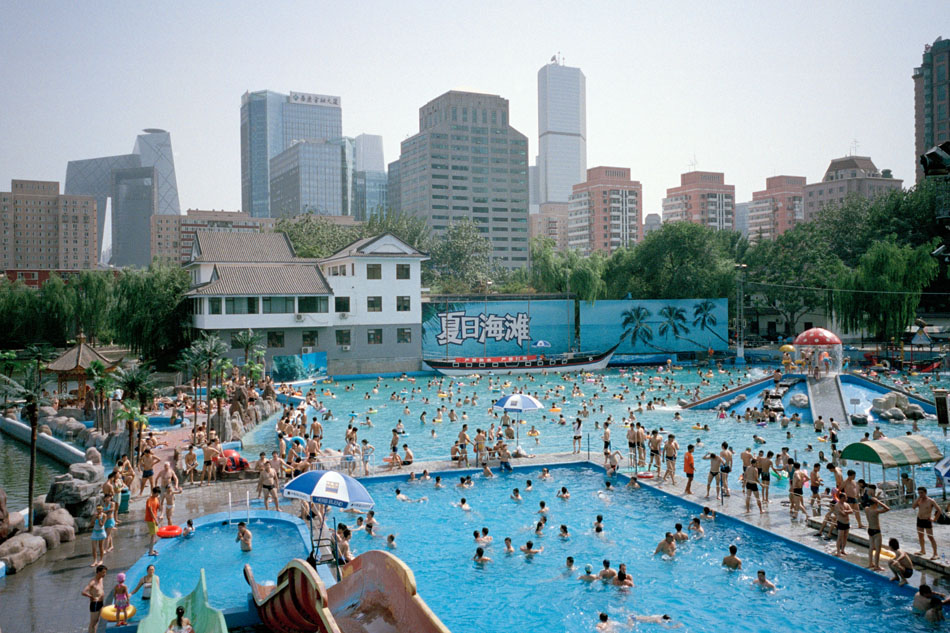
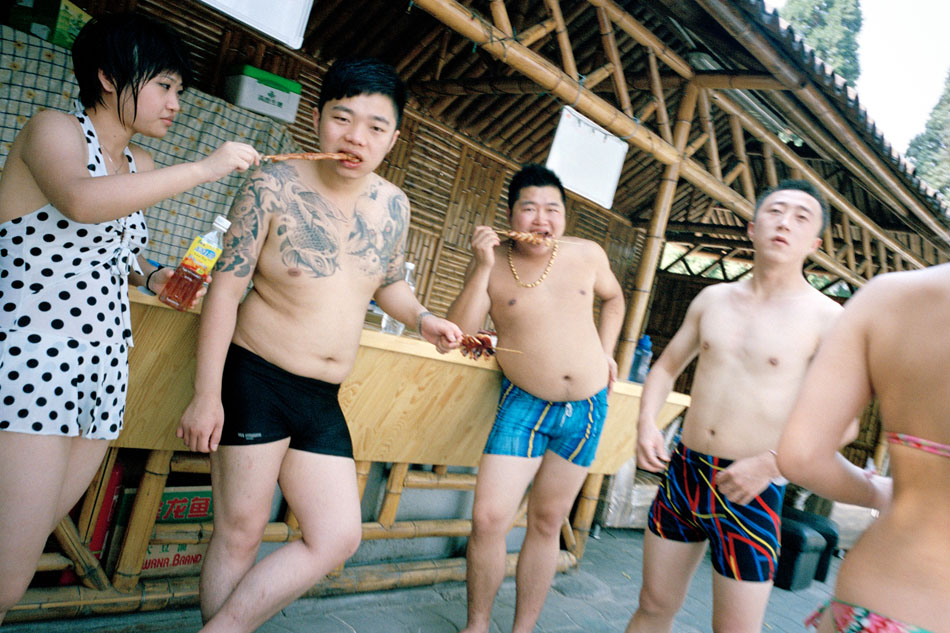
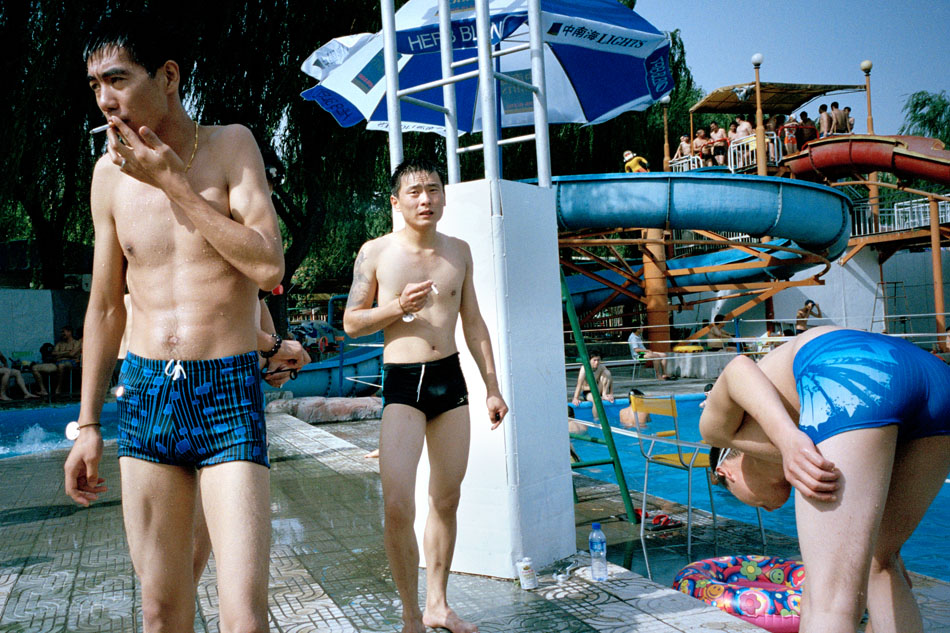
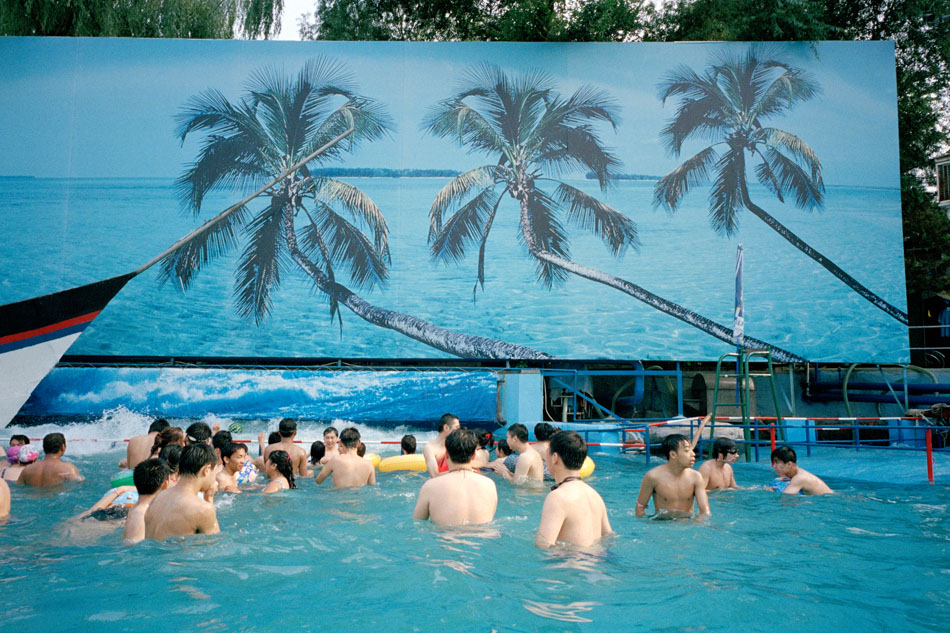
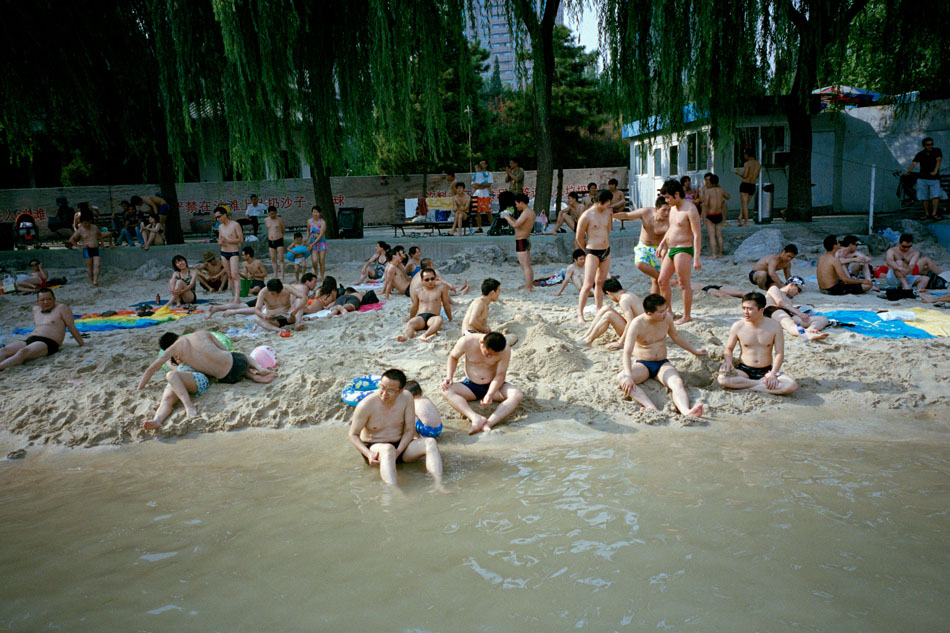
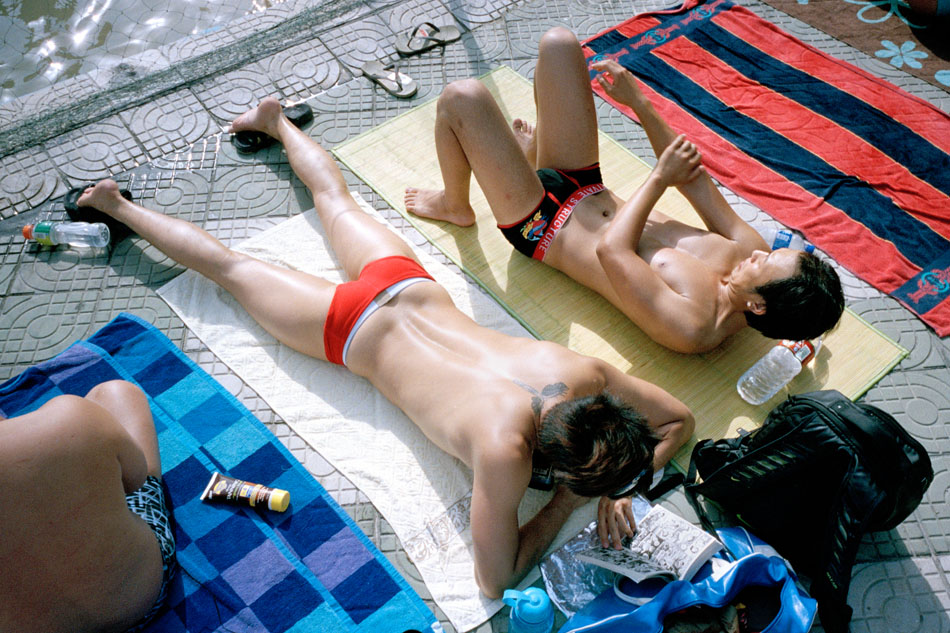

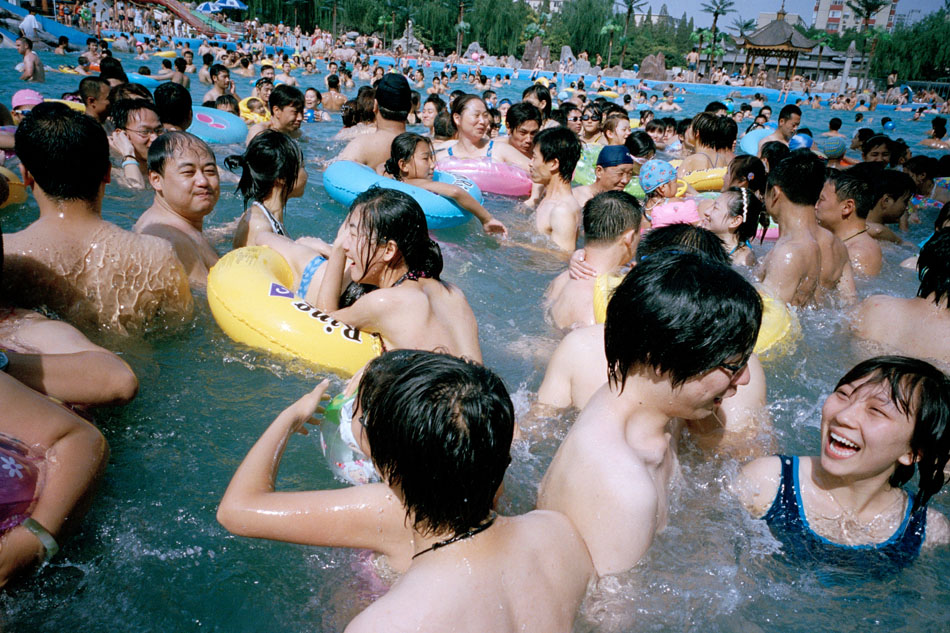
Nov 27, 2008 | Society, Travel
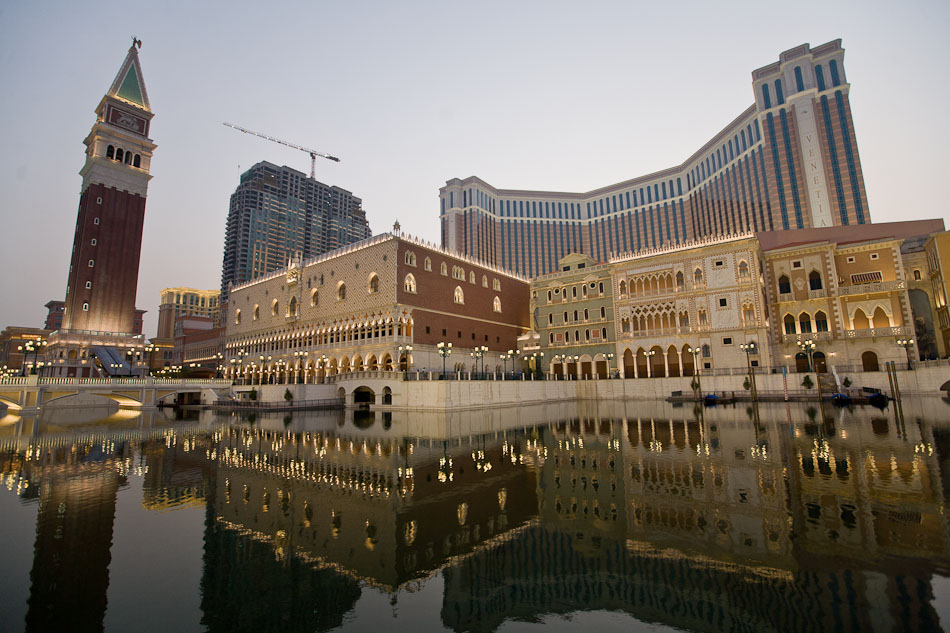
Macau’s unique character draws deeply from its eclectic cultural heritage. Both the first and last European colony in China, Portuguese sovereignty in Macau was not ceded until 1999, over 400 years after the establishment of the original settlement. Since the handover Macau has existed in a liminal realm stipulated by the “one country, two systems” policy – the Chinese state handles defense and foreign affairs but relinquishes control over domestic matters such as the police force, monetary system and political appointments. However, since Macau opened up its casino sector in 2002, the island’s socioeconomic fate was bound to the rise and fall of its entertainment resorts.
Last month I ventured to Macau to inspect the Cotai Strip, a massive development modeled after the Las Vegas Strip and home to the Las Vegas Sands’ Venetian Macau Resort. Currently the largest casino in the world, the Venetian helped Macau surpass Las Vegas in gambling revenues last year. For now Macau remains the only gambling destination within China and easily one of the most prominent within Asia. Still, the Chinese state is trying to curb the rampant profits and concomitant “dark elements” that spawn from the gambling world. Thanks to new border regulations implemented this summer, mainland Chinese can only visit Macau once every three months.
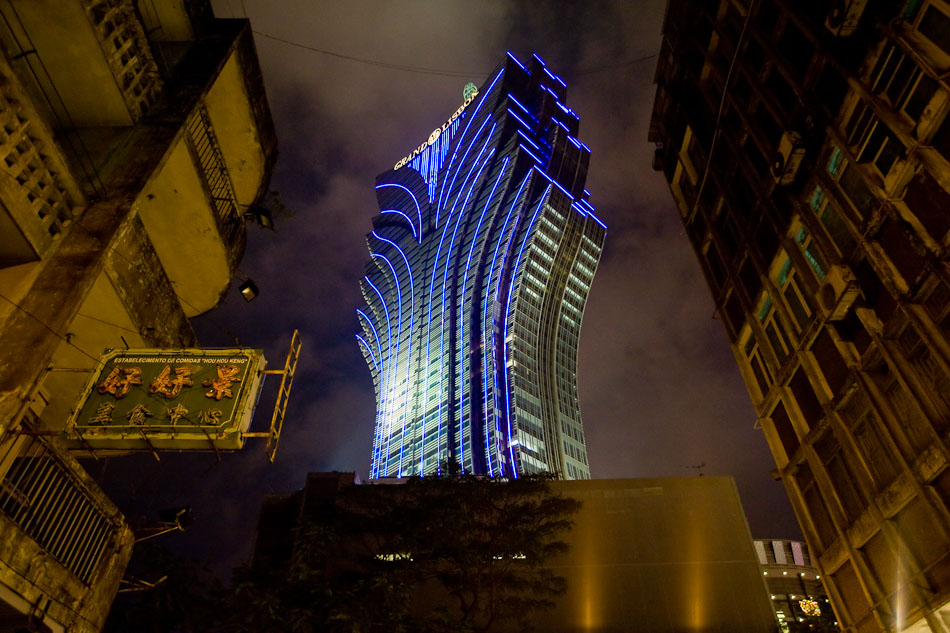
The loss of such an audience now pales in comparison to the impact of the current global financial downturn. Las Vegas Sands recently laid off 11,000 laborers and suspended work on two expansion projects planned for the Cotai Strip. MGM and Galaxy Entertainment also halted future expansion efforts. The hottest casino market in the world fizzled almost overnight. Still, a halt to the unchecked leeching of Asia’s nouveau riche might not be such a horrible turn of events. More shopping malls and roulette tables should be the least of Macau’s concerns as it continues to come to grips with its new identity as Asia’s premiere entertainment destination.
Over the past few years Macau residents have taken to the streets to protest against rampant corruption and labor issues stemming from the rise of powerful casino moguls. Now, with financial markets spiraling out of control, relying on the luxury entertainment industry no longer seems like a safe bet. For once the demand for casinos in Asia cannot meet the excessive supply in Macau. Catering to indulgent tastes at the Venetian does not fit reform-minded market trends. Even if Macau’s casinos make some sort of recovery in the coming months, the whole enterprise carries a heavier stigma of waste and decadence.
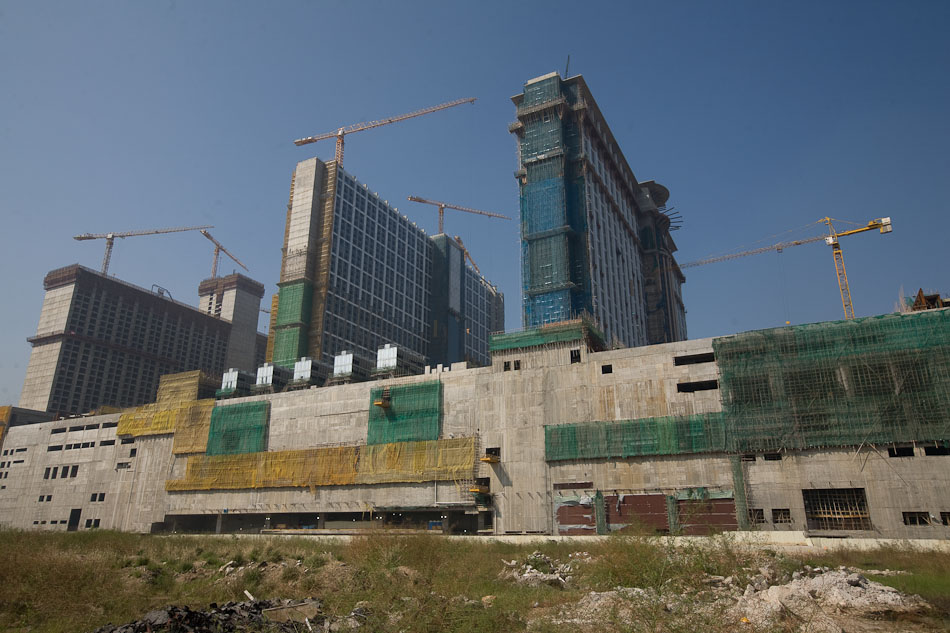
Jan 14, 2008 | Portraits, Society
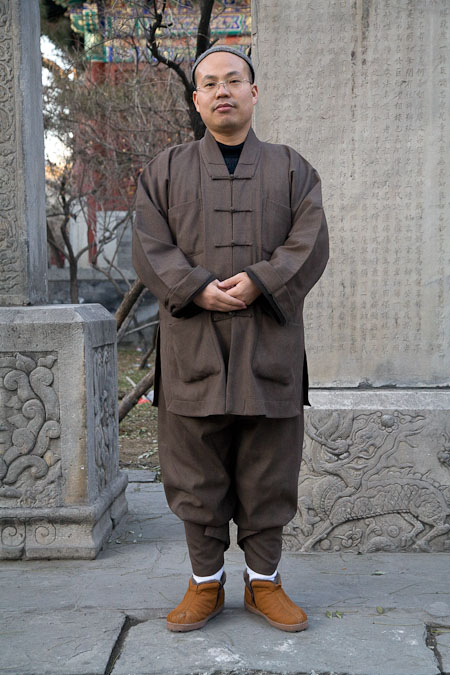
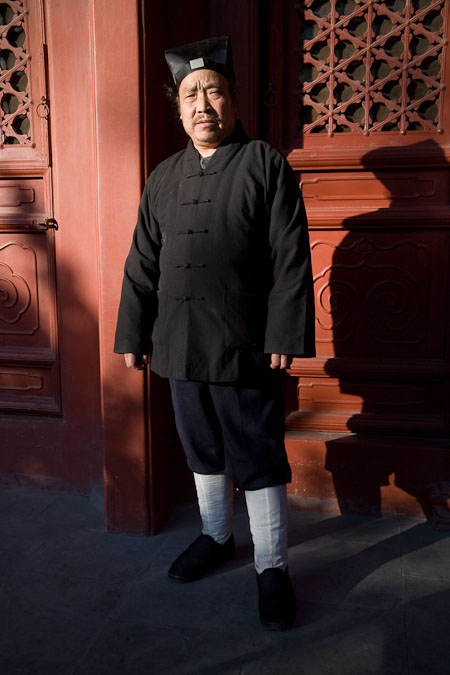
Homosexuality in China doesn’t elicit the same cross-burning fanaticism that it does in the United States. In all my time spent here I never heard of a hate crime aimed at a homosexual. Chances are that such occurrences might not get reported or covered in the media, and discrimination certainly exists in various guises, but I have yet to encounter people who label homosexuality as “evil” and support its whole scale eradication. Instead, sexual deviance tends to inspire curiosity and awkwardness amongst typical Chinese urban dwellers. It remains a latent oddity within the social milieu.
It still came as a bit of a surprise when Dinah Gardner, the longtime Gay & Lesbian columnist for TimeOut Beijing, told me we were going to the White Cloud Temple and the Source of Law Temple to ask monks about their respective views on homosexuality. Even though I consider myself well versed within the Daoist and Buddhist canon, it never really crossed my mind to ask such a question before and I was interested in how the monks would frame their responses. As the photographer, I could also sit back and watch the fireworks fly.
Lou Jiayong, a Daoist monk at the White Cloud Temple, was the first to get entrapped by Dinah. She started the interview with some elementary questions concerning Daoism and then popped him the big one: “In the West, Islam and Christianity often persecute homosexuals. How does Daoism feel about homosexuality amongst practitioners?” Lou handled the question surprisingly well. According to Daoist principle, homosexuality represents a metaphysical problem. The union of two Yang forces (male on male) creates disharmony within the Dao and must eventually be resolved. “If there is only Yin or Yang it is imbalance or disharmony,” stressed Lou. Homosexual relationships do not perpetuate natural life. At some point, Yin must mix with Yang to produce more babies. Lou did emphasize that Daoism would never discriminate against homosexuals but remained adamant that Daoist ideology could never condone what he considered lewd sexual acts and anomalies in the natural course of existence.
Zhi Yong, a Buddhist monk at the Source of Law Temple, remained unperturbed throughout his interview. Buddhist practitioners of any orientation are encouraged to stem their sexual desires in order to achieve inner peace. At the heart, there is no absolute right or wrong with regards to homosexuality. Zhi continued, “[Homosexuality] is abnormal to me, but of course from the point of view of a gay person, it is quite normal… In Buddhism everything has two sides. How can you say, ‘this is right,’ or, ‘this is wrong?’ There is no right or wrong in this world. For some people they are right, for others they are wrong.” While I might not support such moral ambiguity in other situations, being gay and Buddhist doesn’t represent a problem for lay people. Still, if you want to join a monastery you must leave any prurient thoughts at the door.
Nov 16, 2007 | Society

Oliver August submitted a great article to Wired on the Chinese state’s imprudent attempts to monitor and filter domestic Internet content. The impractical task continues to disconcert the central government as millions of new users chip away at the “Golden Shield” on a daily basis. Still, nothing can stem the burgeoning flow of digital traffic and desire for unadulterated information access. Adaptive technologies such as proxy servers and encryption constantly spoil attempts to seal outside media from online denizens. The problem will only expand as a younger, tech-savvy generation comes to age. Restricting the Internet only seems to create a stronger urge amongst adolescents to devour the forbidden fruits beyond the “Golden Shield.”
Although this does not mark the eminent demise of the Chinese Communist Party’s (CCP) iron grip on the Chinese state, the CCP is scrambling to revamp their ministry of disinformation (aka The Central Propaganda Department – 中共中央宣传部) and methods of pacifying perturbed social groups. Puppet strings amongst the masses are growing taut and sometimes snapping as the Chinese state loses ground in an increasingly influential online world. Bloggers and journalists now regularly flout bans on reporting events blacklisted by the Chinese state. As the masses continue to grow wary of the Chinese state’s official mouthpieces, they actively seek out alternative media outlets both at home and abroad. Even though only a tenth of China’s massive 1.3 billion population consistently access the Internet, these numbers are rising just as fast as China’s breakneck GDP growth.
The greatest hope for this information revolution subsists in the Chinese state’s reliance on new communication technologies to drive economic expansion. They cannot simply unplug the masses. While Burma cut the Internet with ease during recent pro-democracy protests, the Chinese State would bring untold ruin to markets that increasingly depend on the Internet to drive business and communication. It would also represent a massive step backward in desperate attempts to present a polished facade for the world during the Olympics. In any case, the future political battlefield will certainly take place online where everyone can have an equal stake much to the CCP’s dismay.
Link: The Great Firewall: China’s Misguided — and Futile — Attempt to Control What Happens Online
Oct 30, 2007 | Society

As urban residents wield greater purchasing power, sophisticated shopping becomes an ever-important status symbol. Those at the top of Beijing’s increasingly stratified income brackets constantly seek to distinguish themselves from the rest of the pack. Conspicuous consumptive habits thus provide instant prominence and luxury companies are scrambling to cater to and expand upon every whim and desire. Designer clothing, sports cars, and jet-set vacations become necessary additions to any ostentatious parvenu enjoying the taste of once forbidden fruits.
This weekend I bore witness to the star-studded opening of Lane Crawford’s department store in Beijing. It’s a four-story behemoth in a glitzy mall and only stocks vogue international fashion designers. Apparently Beijing has stepped into the sartorial big leagues. Whether or not the store will make money is another question. Beijing doesn’t exude pretentious airs quite like Shanghai or Hong Kong yet. Local shoppers prefer to browse the racks and then hit the streets in search of similar black-market counterfeits. Still, this won’t stop major luxury brands vying to cash in on Beijing’s nouveau riche and their swelling materialistic obsessions. Too much is at stake in this potential market.
Unfortunately sipping on Moet all evening and ogling $5,000 USD Raf Simmons leather jackets can only provide so much enjoyment. Such prices smack of insolence considering the average income of rural farmers in China still tops out at around $225 USD per year according to the Xinhua News Agency. Even most city dwellers who average $750 USD per year would be left out of the commodity feeding frenzy occurring in department stores across Beijing. Many disenfranchised economic groups are starting to take action though, and the Chinese state is starting to realize the vast potential of widespread social unrest if income gaps continue to widen in favor of those already lining their closets with Givenchy, Paul Smith, and Prada. Even though the potential for a luxury backlash looms ever on the horizon, for now nothing seems to stand in the way of these corporate giants.
See “China’s hunger for luxury goods grows” for an excellent description of Chinese yuppies aka chippies.
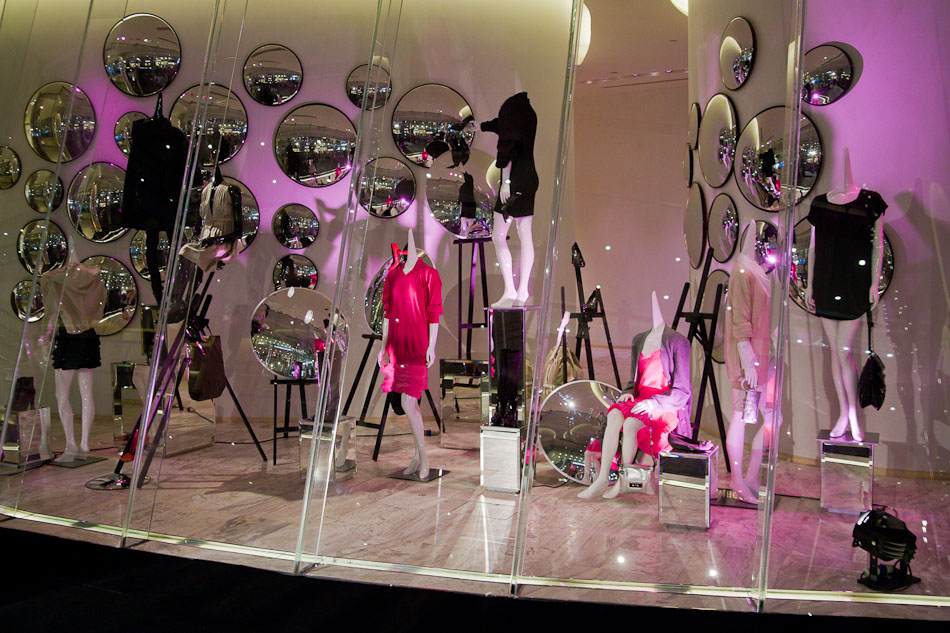
Oct 1, 2007 | Society
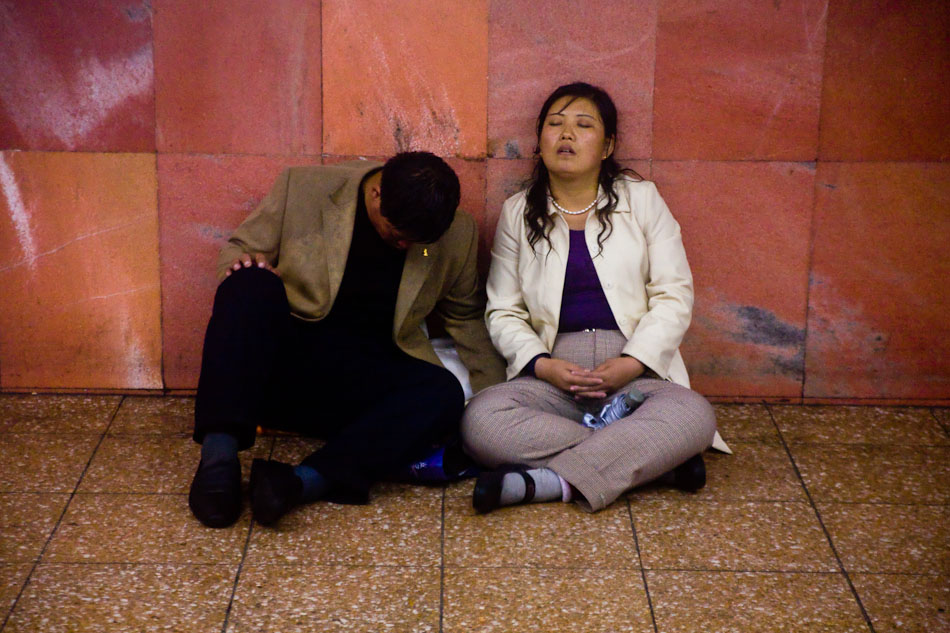
Only those of true revolutionary spirit braved the elements to witness the Chinese flag hoisted above Tiananmen Square at dawn this National Day. Not many survived the long night of revelry to diligently stand at attention on the hallowed ground where Mao founded the People’s Republic of China and was finally laid to rest in his oversize mausoleum. Fallen patriots who succumbed to the cold rain lay scattered about underground walkways leading up to Tiananmen while running dogs of capitalism bustled about hawking their overpriced umbrellas and ponchos to the shivering masses. Luckily I came prepared in my windbreaker and marched resolutely into the square after tucking in a plate of steamed buns at Qianmen.
Jockeying for position close to the flagpole proved difficult when police officers cordoned off various sections of the square devoted to massive billboards displaying nationalistic slogans such as, “Vivaciously celebrate the 58th anniversary of the establishment of the People’s Republic of China!” or, “Steadfastly hold to the great path of China’s unique social ideology!” Nonetheless, the assembled revolutionaries seemed more concerned with the persistent umbrella battle raging amongst those packed closest to the front – many were martyred on spiked parasols wielded by tiny ladies repelling the ceaseless tide of bodies cramming for a closer glimpse of the ceremony. The sea of umbrellas only receded when the stirring drum overture of the Chinese national anthem called the crowd to attention. Everyone then raised their mobile phones to solute the flag and capture the special moment as “March of the Volunteers” resounded throughout Tiananmen.
Arise,
Ye who refuse to be slaves!
With our very flesh and blood,
Let us build our new Great Wall!
The peoples of China are in the most critical time,
Everybody must roar his defiance.
Arise!
Arise!
Arise!
Millions of hearts with one mind,
Brave the enemy’s gunfire, March on!
Brave the enemy’s gunfire, March on!
March on!
March on!
On!
The spirited lyrics of the song struck a deep chord in the audience. Seconds after the final note everyone marched straight to the exit. I remained to pay respect to Mao’s portrait looming over the entrance of the Forbidden City – it’s pastel background reflecting the soft hues of the rising sun.
